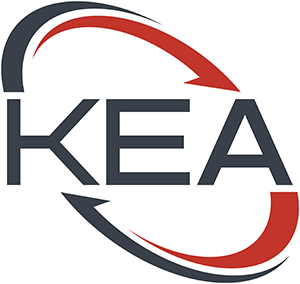Focused Groups & Surveys
The Human Research Group at KEA Technologies specializes in developing and conducting focus groups and surveys to gain valuable insights into human behavior, preferences, and experiences. With a focus on research ethics and integrity, we prioritize the responsible and ethical conduct of research to ensure the well-being and confidentiality of participants.
Why Choose Us?
Our team brings a wealth of expertise in social science research, psychology, public health, and related disciplines. Whether our clients are exploring consumer preferences, assessing program effectiveness, or evaluating public opinion, we work closely with clients to develop research tools that address their goals and questions.
Ethics and integrity are at the core of everything we do. We prioritize the well-being and privacy of our participants, adhere to strict confidentiality protocols, and ensure that our research methods are conducted in an ethical and responsible manner.
Whether we are working with a government agency, non-profit organization, or private sector entity, our research findings empower clients to implement evidence-based strategies and policies that create meaningful impact.

Our Services
Focus Groups: Our experienced team facilitates in-depth discussions with small groups of participants to explore attitudes, opinions, and perceptions on specific topics. Through guided conversations and interactive activities, we uncover rich qualitative data that provides valuable insights for decision-making and strategy development.
Surveys: We design and administer customized surveys to collect qualitative and quantitative data from various audiences. We employ a variety of methodologies to gather information on demographics, preferences, behaviors, and more. Our surveys are tailored to meet the objectives of each study and deliver actionable findings for our clients.
Mixed-Methods Research: Combining the strengths of both qualitative and quantitative approaches, we conduct mixed-methods research to provide a comprehensive understanding of complex human phenomena. By integrating focus groups, surveys, and other data collection methods, we offer holistic insights that inform evidence-based solutions and interventions.
IRB Processes: As part of our commitment to research ethics, all of our studies undergo rigorous review and approval by an Institutional Review Board (IRB). The IRB ensures that our research protocols and materials adhere to ethical principles, protect the rights and welfare of participants, and comply with relevant regulations and guidelines.
Sample Projects
Symbology for Locomotive Head-Up Display (HUD)
As part of a Federal Railroad Administration (FRA)-funded Head-Up Display (HUD) research project that began in 2020, KEA Technologies Inc. developed a limited library of symbols for both freight and passenger operations, to be integrated in a prototype HUD developed separately by another team of researchers sponsored by FRA. The research team developed two surveys to collect feedback from stakeholders. Based on the feedback, the team made the suggested changes to the symbols and finalized the libraries. Three library subsets were created, one comprising all the symbols, a second comprising symbols only relevant to passenger operations, and a third comprising symbols only relevant to freight operations. Check out the technical report here
Workforce Development
Currently, KEA is being funded to conduct two workforce development projects on behalf of the Federal Railroad Administration. One of the projects focuses on how well rail carrier’s cultures and performance management systems appeal to underrepresented individuals at the point of recruitment and serve them once hired. The other project focuses on how the FRA can support rail carriers to effectively improve the experience of women working in rail, recruit quality female talent, and retain and promote that talent through long careers in the industry. Researchers aim to provide insight into women’s perspectives with expanded qualitative narratives that enhance, humanize, and provide context for statistics and other existing quantitative data. Both projects involve surveys, interviews, and focus group methods.
